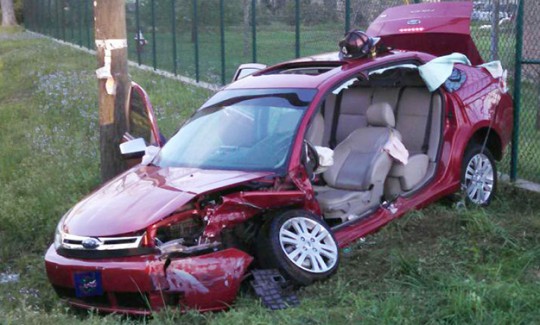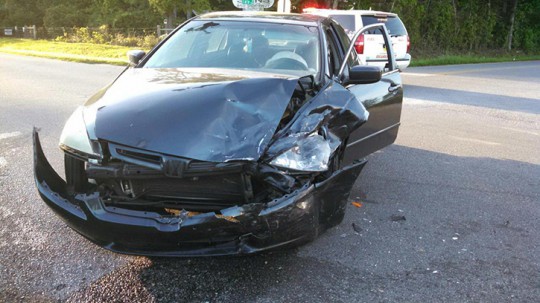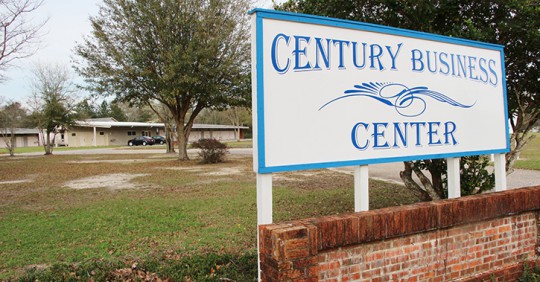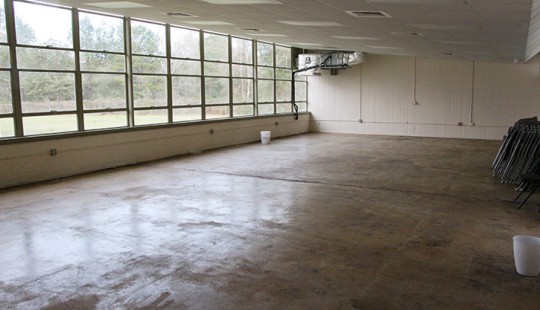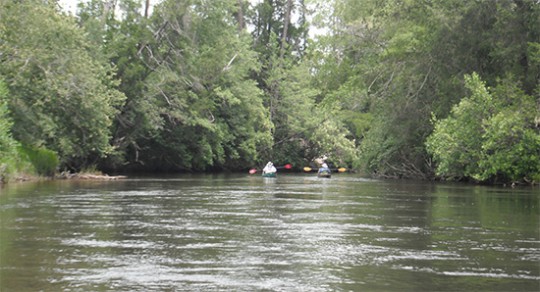Tate Beats SC Team; Tate JV Over Northview; Jay Softball Over Baker In Six
April 3, 2015
 Tate 5, Fort Mill (SC) 3
Tate 5, Fort Mill (SC) 3
Tate 2, Northview 0 (JV)
On a long spring break road trip, the Tate Aggies beat Fort Mill (SC) 5-2 Thursday. Mark Miller pitched the win for the Aggies striking out four. Miller was 2-3 with an RBI for the Aggies. Branden Fryman was 2-4 with a run, Cole Halfacre was 2-4 with a RBI, Hunter Worley 2-3, Josh Kean 1-3 with a run, and Jacob Saulnier 1-4 wit ha RBI.
SOFTBALL
Jay 13, Baker 2 (6 innings)
The Jay Royals beat the Baker Gators 13-2 in district softball Thursday night. Dana Blackmon pitched six, striking out five, and going 4-4 at the plate. Michaela Stewart 2-4, 2R, RBI; Harley Tagert 2-3, 2R, RBI; Samantha Steadham 1-3, 3R, 2B, RBI; Destiny Herring 1-4, 2R, 2B, RBI. The Lady Royals will host Laurel Hill on Tuesday.
Pictured top: Samantha Steadham at bat for the Lady Royals Thursday at Baker High School. Pictured inset: Dana Blackmon pitched the win in six and went 4-4 at the plate. Photos by Diann Tagert for NorthEscambia.com, click to enlarge.
Two Injured In Kingsfield Crash
April 3, 2015
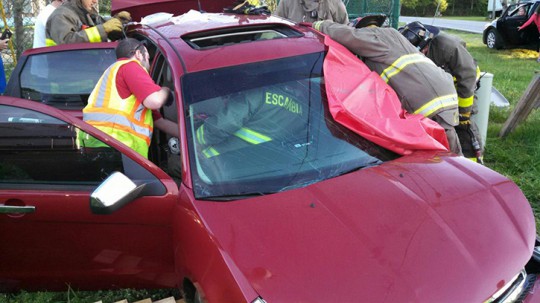 Two people were injured in a two vehicle accident Thursday afternoon in Cantonment.
Two people were injured in a two vehicle accident Thursday afternoon in Cantonment.
The accident was reported just after 6 p.m. on East Kingsfield Road near Tate Road. At least one victim had to be extricated from their vehicle (pictured left) using the Jaws Of Life. Both victims were transported to area hospitals with injuries that were not considered life threatening. The accident remains under investigation by the Florida Highway Patrol. Further details have not been released.
Reader submitted photos for NorthEscambia.com, click to enlarge.
Grant Presented To Youth Ag Group; Portion Of New 4-H Facility Ready
April 2, 2015
Monsanto presented a $2,500 America’s Farmers Grow Rural Education grant to the Gulf Coast Agriculture and Natural Resources Youth Organization Wednesday.
The grant was won by Walnut Hill farmer Brett Ward who in turned asked that it be donated to the group to be used for prizes and premiums at their Annual Livestock Show, and for other youth agriculture educational programs.
“The grant enables farmers to put money back into their communities,” Rod Higdon, Monsanto representative, said.
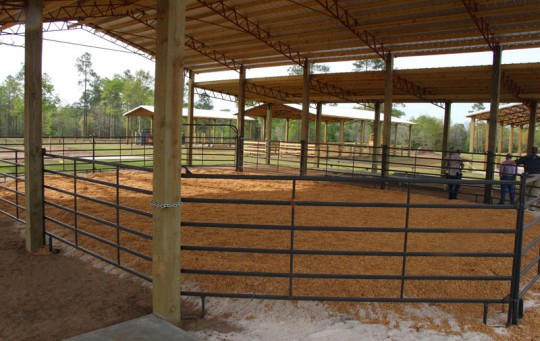 The presentation was held at the new county-owned 4-H property on South Highway 99 in Molino. The site includes two parcels — a 79.5 acre lot that already includes a covered barn and will be home to most 4-H activities and a 28.7 parcel that will be used for livestock activities.
The presentation was held at the new county-owned 4-H property on South Highway 99 in Molino. The site includes two parcels — a 79.5 acre lot that already includes a covered barn and will be home to most 4-H activities and a 28.7 parcel that will be used for livestock activities.
The first phase of the project, on the 28.7 acres, is mostly complete, with a half dozen barns and a covered arena for livestock.
For more photos of the facility and presentation, click here.
Construction should be complete within the next couple of years on facilities set to include restrooms, a small classroom, nature trails, campsites for tent camping, fire pit for outdoor cooking and group events, bird blind, archery area, a low ropes course and more on the larger parcel.
In 2012, the children and teens on the 4-H County Council voted to sell their 240 acre Langley Bell 4-H Center to Navy Federal Credit Union.
The GCA and NRA Livestock show will bee held Saturday April 18 beginning at 8 a.m. at the Molino Facility on South Highway 99 just north of Chalker Road. FFA and 4-H youth ages 8-18 will exhibit rabbits, poultry, swine and cattle followed by a live auction.
Pictured: Monsanto presented a $2,500 America’s Farmers Grow Rural Education grant to the Gulf Coast Agriculture and Natural Resources Youth Organization Wednesday. Pictured top are (L-R) 4-H member Allison Woodfin, GCA and NRYO President Jack Livingston, Monsanto’s Rod Higdon, Escambia County Commissioner Steven Barry, Walnut Hill farmer and grant applicant Brett Ward, and Northview FFA member Mitchell Singleton. NorthEscambia.com photos, click to enlarge.
Ingram Introduces $11.6 Billion Transportation, Economic Development Budget
April 2, 2015
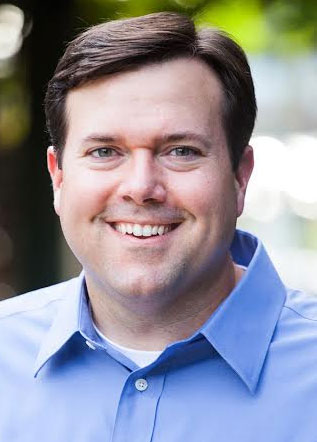 Wednesday, House Transportation & Economic Development Appropriations Chairman Clay Ingram, R-Pensacola, introduced the $11.6 billion budget for transportation infrastructure and economic development.
Wednesday, House Transportation & Economic Development Appropriations Chairman Clay Ingram, R-Pensacola, introduced the $11.6 billion budget for transportation infrastructure and economic development.
The budget includes $12 million for armory renovations, maintains funding at $19.5 million for Space Florida and $74 million for Visit Florida, provides $22.3 million in state aid to libraries, $14.8 million for cultural and museum grants, and $121.5 million for affordable housing programs. The fiscal package also includes $9 billion for the state’s transportation work program.
10 Business Ideas Pitched For $25K Century Business Challenge
April 2, 2015
Ten applicants will battle it out with business plans in the $25,000 Century Business Challenge.
The 10 proposed businesses range from light manufacturing, technology, healthcare services, transportation, education, childcare and apparel. Participants will now begin attending workshops hosted by the Small Business Development Center and developing their plans leading up to a final submission on June 5th and a pitch to the judges panel on June 25th.
Prizes for the winner of the Century Business Challenge include space at the Century Business Center at a lease rate of $1 per year, with the possibility of an extension of that rate for two more years based on the company’s performance. They will also receive $25,000 in operating funds from the Studer Institute. And the Century Town Council has recently approved offering the same $1 per year lease rate at the Century Business Center for the second place finisher.
The Century Business Challenge is part of an economic development partnership of the Haas Center, the Town of Century and the Studer Institute.
Pictured top and below: Century Business Challenge winners can chose space in the Century Business Center for $1 per year.
Story Time With The Easter Bunny At The Molino Library
April 2, 2015
Children are invited to wear their comfy, cozy pajamas, bring their blankets and enjoy stories with the Easter Bunny this evening at the Molino Branch Library.
The story time begin as 6 p.m.; the library is located in the Molino Community Center at 6450-A Highway 95A.
Parents are encouraged to bring their cameras for the photo opportunity.
Florida Senate Passes Prison Overhaul
April 2, 2015
The Florida Senate on Wednesday overwhelmingly supported a prison-reform package that includes a commission to oversee the state’s embattled corrections agency, but the House is poised to consider a competing plan that lacks the oversight panel.
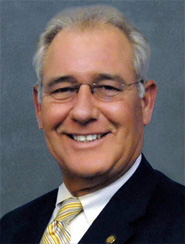 Senate Criminal Justice Chairman Greg Evers pushed forward the changes in the aftermath of stories about inmate abuse at the hands of prison guards, rampant corruption inside prisons and allegations of retaliation against whistleblowers.
Senate Criminal Justice Chairman Greg Evers pushed forward the changes in the aftermath of stories about inmate abuse at the hands of prison guards, rampant corruption inside prisons and allegations of retaliation against whistleblowers.
Evers’ bill (SB 7020) would make it easier for inmates to file complaints, create new penalties for rogue guards who abuse prisoners and establish a governor-appointed commission to oversee prisons and investigate wrongdoing. The measure, approved by a 36-1 vote, would also allow inmates’ families or lawyers to pay for independent medical evaluations and expand opportunities for old or sick inmates to get out of prison early.
The proposal would also require corrections workers to videotape all “non-reactionary” use-of-force incidents — non-emergency situations in which inmates are gassed with noxious chemicals. Each prison would have to track use-of-force incidents and the Department of Corrections would have to post an annual report documenting those incidents on its website.
“They don’t go to prison to be sentenced to death unless they are put on Death Row, and we’ve had too many questionable deaths in our prisons. I just really hope this is the beginning of the end of the crisis and the unfortunate circumstances that we’ve seen in our penal institutions,” Senate Minority Leader Arthenia Joyner, D-Tampa, said.
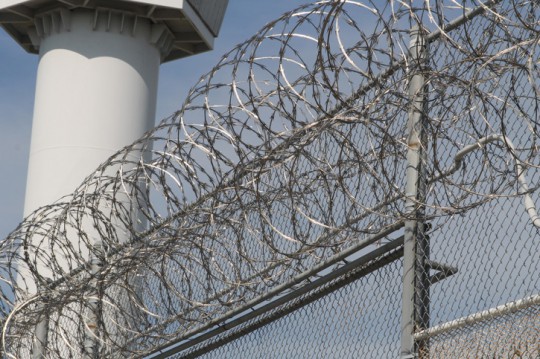 Evers, whose Panhandle district includes three prisons and numerous work camps, made several surprise visits to institutions over the past several months. The visits revealed inadequate inmate health care, overworked and understaffed prison guards and shoddy equipment, the Baker Republican previously said.
Evers, whose Panhandle district includes three prisons and numerous work camps, made several surprise visits to institutions over the past several months. The visits revealed inadequate inmate health care, overworked and understaffed prison guards and shoddy equipment, the Baker Republican previously said.
“We will go to the point that when you go to prison that you will be given the opportunity to enter the Department of Corrections. You will be allowed to rehabilitate yourself … and you will come out alive on the other side and not leave the prison in a body bag,” Evers said earlier this year.
House Speaker Steve Crisafulli and other GOP House leaders have repeatedly rejected the oversight commission, objecting that the effort would create another “layer of bureaucracy.” Critics of the commission also say that a previous iteration of the oversight panel did not work.
On Wednesday, Crisafulli told reporters his chamber is prepared to release an alternative plan that could further decentralize the corrections agency, now divided into three regions. The department oversees more than 100,000 prisoners, nearly as many probationers and employs more than 20,000 workers.
“One thing we’ve talked about is more of a regional approach. They’re obviously looking at an overall board, so to speak, to go back to,” Crisafulli, R-Merritt Island, said. “And for us, for me, I would think each region has a little bit of different challenges, so having that opportunity to maybe handle that at a regional approach versus one location in Tallahassee might be a better way to go. …We’re going to work out those differences.”
Evers said he had initially rejected the oversight panel but, at the suggestion of Sen. Rob Bradley, included it in his package after making the prison visits and hearing repeated stories from inmates and workers about wrongdoing, abuse and staffing issues.
The new commission would have investigatory powers and be in charge of policing prisons, now handled by the Office of the Inspector General, which answers to Gov. Rick Scott’s chief inspector general.
Bradley, a former prosecutor who for two years chaired the Senate’s criminal-justice budget committee, insists that an independent panel is necessary to restore trust because the agency’s inspector general “has not done a good job of rooting out bad actors.”
Corrections Secretary Julie Jones, brought out of retirement by Scott earlier this year to take over the troubled agency as the governor’s fourth corrections chief in as many years, has committed to expanding internal reforms launched last year by her predecessor, former Secretary Mike Crews, and is especially interested in changing how mentally ill inmates are treated.
“I do appreciate her words. I believe her when she says she’s dedicated to reform. But we’ve heard it before by some of her predecessors. And there’s been seven or eight secretaries in 10 years. So we need more than words. We need to have verification that reforms are actually occurring. That’s why that oversight is so important to us,” Bradley, R-Fleming Island, said.
by Dara Kam, The News Service of Florida
Top Ten Legislative Issues At The Halfway Point
April 2, 2015
As Florida lawmakers prepared last month to start the 60-day legislative session, 10 big issues popped out as priorities. Typically, big issues get resolved in the final weeks, days and hours of legislative sessions. But as the session hit its halfway point Wednesday, here is an update about where those 10 issues stand:
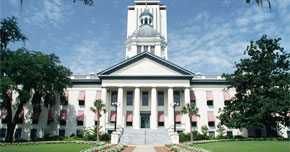 BUDGET: It’s been called a chasm. As the House and Senate prepare to enter budget negotiations later this month, they are more than $4 billion apart on their spending plans. Ordinarily, this would be a good budget year, as lawmakers have a more than $1 billion surplus. But lawmakers face uncertainty about the future of a nearly $2.2 billion health-care program, known as the Low Income Pool, which is scheduled to expire at the end of June. The state is trying to negotiate an extension of the program with the federal government. But the uncertainty is causing ripples throughout the budget, including playing a major role in the divide between the House and Senate.
BUDGET: It’s been called a chasm. As the House and Senate prepare to enter budget negotiations later this month, they are more than $4 billion apart on their spending plans. Ordinarily, this would be a good budget year, as lawmakers have a more than $1 billion surplus. But lawmakers face uncertainty about the future of a nearly $2.2 billion health-care program, known as the Low Income Pool, which is scheduled to expire at the end of June. The state is trying to negotiate an extension of the program with the federal government. But the uncertainty is causing ripples throughout the budget, including playing a major role in the divide between the House and Senate.
CHILD WELFARE: Last year, after a series of child deaths, the Legislature passed a wide-ranging law aimed at reforming Florida’s child protection system. This year’s session started after the shocking death of a child who was dropped off a bridge into Tampa Bay. After holding hearings, the House and Senate have moved forward with proposals that would build on the 2014 law. As an example, lawmakers are proposing a requirement that services to maltreated children be based on what is known as “trauma-informed care,” a more child-centered approach. As another example, a House bill would expand the role of the state’s Critical Incident Rapid Response Team, which the secretary of the Department of Children and Families can deploy in cases of child deaths.
GAMBLING: The House and Senate have long disagreed about gambling. Usually, the Senate has wanted expanded gambling, while the more-conservative House has refused to go along. But this year, the roles have been reversed. House Majority Leader Dana Young, R-Tampa, proposed a sweeping plan that, in part, would allow up to two Las Vegas-style casinos in Miami-Dade and Broward counties and allow slot machines at greyhound tracks in Palm Beach County and Southwest Florida. But Young said she doesn’t even know if her plan will get a vote. The Senate, meanwhile, has negotiated with the Seminole Tribe of Florida on part of a deal that is scheduled to expire this summer. But with Senate President Andy Gardiner an adamant foe of gambling, the Senate doesn’t appear willing to take up more far-reaching changes. Lawmakers, however, face pressure to reach agreement with the Seminoles. The deal involves $116 million a year the state receives for allowing the tribe exclusive rights to offer games such as blackjack at its casinos.
GUNS: Republican lawmakers have rallied behind the Second Amendment during this year’s session. The GOP-controlled Legislature appears ready to approve a plan that would expand the number of people who could carry concealed weapons during emergency evacuations. The Senate has already passed the plan, which would allow lawful gun owners who don’t have concealed-weapons licenses to carry firearms during such evacuations. Committees in both chambers, meanwhile, also have approved bills that would allow people with concealed-weapons licenses to carry guns on the campuses of state colleges and universities. University-system officials oppose the campus gun bill, which is being considered after a shooting incident in November at Florida State University that left three people wounded.
HEALTH CARE: As happens every year, lawmakers are considering dozens of bills dealing with health-care issues. But all of those issues pale compared to the future of the Low Income Pool program and a Senate attempt to expand health coverage to about 800,000 low-income and uninsured people. Both the House and the Senate want to reach agreement with the federal government on an extension of the Low Income Pool, though only the Senate has included the program in its budget plan. But the Senate’s proposal to use money available under the federal Affordable Care Act to expand health coverage has split the chambers. The Senate plan would use a private health-insurance system to provide the coverage, trying to draw a distinction with a straight expansion of the Medicaid program. But House Republican leaders have shown no sign that they are willing to accept billions of dollars in federal money to expand coverage.
LAND AND WATER: Lawmakers came into the session with an extra mandate on their plates. Voters in November approved a constitutional amendment requiring the Legislature to set aside hundreds of millions of dollars a year for land and water projects. Both chambers have moved forward with plans, but backers of the constitutional amendment contend lawmakers are not spending enough money on buying land for preservation. Leaders in both chambers say they are following the requirements of the constitutional amendment and that the state needs to focus on managing vast amounts of land that it already owns. Meanwhile, the House and Senate need to work out details of a water-policy plan, which is a key priority of House Speaker Steve Crisafulli, R-Merritt Island.
PRISONS: Senate Criminal Justice Chairman Greg Evers, R-Baker, has spent the past few months digging into problems in the Florida Department of Corrections, making unannounced visits to prisons and taking sworn testimony during a committee meeting. That led the Senate on Wednesday to approve a wide-ranging plan aimed at cleaning up problems in the prison system, which has been rocked by investigations into inmate deaths, allegations of cover-ups and complaints about poor working conditions. But the House and Senate still need to reach agreement on reforms. One major difference is that the Senate wants to create a commission that would have the power to conduct investigations at prisons. The House does not support such an idea.
STADIUMS: For an issue involving sports stadiums that regularly fill up with tens of thousands of screaming fans, things have been quiet. Very quiet. Lawmakers are faced with deciding whether to spend sales-tax dollars on projects at EverBank Field in Jacksonville, Daytona International Speedway, Sun Life Stadium in Miami-Dade County and an Orlando soccer stadium. The issue could have been resolved in February, but it was pushed into the session. But so far, there have not been any visible signs of debate on the issue. That’s not to say the issue won’t emerge in the closing weeks. If nothing else, Gardiner, R-Orlando, has made clear he supports tax dollars for the soccer stadium in his hometown.
TAX CUTS: Gov. Rick Scott, who made cutting taxes a signature issue in his 2014 re-election campaign, rolled out an ambitious proposal early this year to slash $673 million in taxes. But the House has one-upped him. It is considering a $690 million tax-cut package. The House and Scott agree on some major cuts, such as a $470 million reduction in the communications-services tax on cell-phone bills and cable and satellite television. But the House also wants to add cuts such as trimming taxes on commercial real-estate leases. The Senate has moved some individual tax-cut bills but has not offered a major package amid the overall budget uncertainty.
TESTING: School testing was already shaping up to be a controversial issue this year. But in early March, technology problems caused widespread problems as students started taking the new Florida Standards Assessments. That has added even more fuel to a debate about whether students and teachers are overloaded with standardized tests and whether the testing system is reliable. The House and Senate have moved forward with bills to address testing issues. Proposals, for example, include eliminating an 11th-grade language arts test and barring final exams in classes for which the state or a local school district has end-of-course tests. But lawmakers are facing pressure to take more-dramatic steps, amid questions about the validity of the testing system.
by Jim Saunders, The News Service of Florida
New Florida EBT Cards In The Mail
April 2, 2015
Florida ACCESS EBT (Electronic Benefit Transfer) cards will begin expiring April 30 and replacement cards with a new design will be mailed to those receiving benefits. The “Good Thru” date printed on the front of the card indicates when the card is no longer valid – the last day of the month presented. Recipients should expect replacement cards to arrive by the 20th of the month that the card is scheduled to expire.
New EBT cards are activated prior to mailing and are ready for use as soon as they are received. After completing a transaction with a new card, former cards will automatically deactivate and can then be disposed of. Existing PIN numbers will remain the same.
Customers who’ve had a change of address since the last application or renewal of benefits was received should log into their MyACCESS Account at www.myflorida.com/accessflorida and report a change of address. This will ensure the new card is mailed to the correct address.
For more information and assistance with replacement cards visit, www.myflorida.com/accessflorida, or call EBT Customer Service at 888-356-3281
Looking For A Spring Break Outdoor Adventure? Try One Of These Ideas
April 2, 2015
by Carrie Stevenson, Escambia County Extension
This time of year, many families are looking for ways to entertain their kids during spring break. For those not planning to travel far, our area is full of fun, and often inexpensive, outdoor adventures.
As part of a series of field excursions led by Extension Agents over the past few years, we’ve been able to introduce visitors and lifelong residents of the panhandle to some tremendous natural resources that are right at our back door. Following are three examples of family friendly trips worth marking off your “Florida bucket list”.
Perdido River: the natural border between Alabama and Florida, the Perdido stretches over 65 miles from its source near Atmore, Alabama and ends up at Perdido Key in the Gulf. Clean, clear, and sandy-bottomed, the Perdido River is a perfect spot to tube, kayak, canoe or paddleboard and several local outfitters can provide equipment. While on the river, you might experience a flyover from a bald eagle, see towering bald cypress, or explore shallow backwater springs and swamps.
Further east is Florida Caverns State Park in Marianna. This region is one of the most biodiverse in the state, with endemic tree species—like the Florida Torreya, found only in three counties in the state—along with many hardwood species found more typically in the central Appalachians. The extensive limestone cavern and spring systems in Jackson County are home to beautiful swimming/diving spots as well as the caverns. The ranger-led tours are excellent, as well as the hiking trails within the park grounds. The cave tour takes about an hour and is mildly strenuous. There are no tours on Tuesday or Wednesday, so keep this in mind when planning a visit.
 At the edge of our district is Hollywood-famous Wakulla Springs. Film site for both “Tarzan” and “Creature from the Black Lagoon”, the spring teems with wildlife year-round. A guided tour via pontoon boat will bring you up close to manatees, alligators, ospreys, anhingas, and large herons. Hiking trails, a swimming hole, and the historic lodge and restaurant are open to visitors as well. The nearby Chipola River is also a beautiful spot to paddle.
At the edge of our district is Hollywood-famous Wakulla Springs. Film site for both “Tarzan” and “Creature from the Black Lagoon”, the spring teems with wildlife year-round. A guided tour via pontoon boat will bring you up close to manatees, alligators, ospreys, anhingas, and large herons. Hiking trails, a swimming hole, and the historic lodge and restaurant are open to visitors as well. The nearby Chipola River is also a beautiful spot to paddle.
Every county in the Florida panhandle has tremendous water resources, from the Gulf to inland rivers and even waterfalls. Take time to explore on your days off this spring.
For more information, contact Coastal Sustainability Agent Carrie Stevenson at 850-475-5230 or ctsteven@ufl.edu.
Pictured top: Canoeing on the Perdido River. Pictured inset: Bald cypress trees at Wakulla Springs State Park. Photos by Carrie Stevenson for NorthEscambia.com, click to enlarge.



